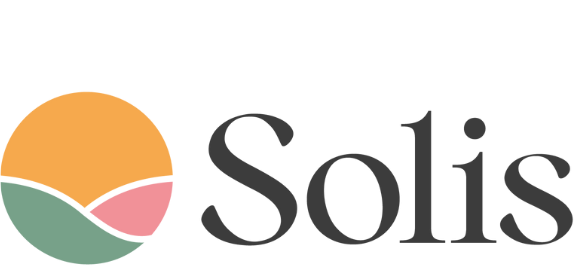

Breast cancer treatments have become more and more successful, with a huge number of women studied beyond breast cancer, discovering what lifestyle factors may reduce the risk of recurrence.
The current recommendations supported by research are:
Maintain a normal body weight, but if you are overweight, losing just 5%-10% of your weight is beneficial.
Do not drink alcohol. Alcohol is one of the greatest risk factors for breast cancer and there is no safe limit as far as breast cancer is concerned. If you do choose to drink alcohol, limit your intake to no more than 7 units a week. Of note, 1 unit is not the same as 1 drink.
- 175ml wine 13% ABV is 2.3 units
- 125ml champagne 12% AVB is 1.5 units
- 330ml beer 5% ABV is 1.7 units
- 25ml spirit 40% ABV is 1 unit
Limit saturated fat by avoiding or rarely eating fast food and highly processed convenience foods.
Do eat foods that contain healthy unsaturated fat, and this includes nuts, seeds, nut butter, olives, avocado, oily fish such as salmon, sardines and mackerel and use extra virgin olive oil.
Limit red meat (beef, lamb, pork) to no more than 500g per week, which in practice is about 3 times a week, and avoid or rarely eat processed meat such as bacon, ham and salami. These foods do not directly increase breast cancer risk but do tend to be high in saturated fat and are linked with increased colon cancer risk.
Eat a high fibre diet. Foods high in fibre include beans and lentils, nuts and seeds, fruit and vegetables, wholemeal bread and flour, brown, red and wild rice, barley, spelt, quinoa, freekeh, kamut and other wholegrains. If you are not used to a high fibre diet, you may notice some bloating and more wind than usual, this is nothing to worry about and is a normal process that shows that your gut microbes are active and keeping your gut healthy, but if it’s uncomfortable, gradually increase your fibre intake over a period of a few weeks. Beans and lentils are especially high in fibre, so try to eat meals containing them at least 4 times a week.


Eat dairy and high calcium foods. Dairy foods are often a cause of controversy, and many people mistakenly believe they are linked with increased breast cancer risk, however, research shows the opposite to be true and that women who include dairy and high calcium foods in their diet have a reduced breast cancer risk. If you dislike dairy foods or are intolerant to them, ensure your diet is rich in high calcium non-dairy foods.


Include soy in your diet. As with dairy, this group of foods can be controversial, but research does show that women who eat soy have a reduced breast cancer risk and reduced risk of recurrence compared to women who do not eat soy. This is the same for both hormone receptor negative and positive breast cancer. You may have heard that soy contains a group of compounds called phyto-oestrogens, and this is where much of the fear arises, however, phyto oestrogens are not the same as the oestrogen that your body makes, they have a different chemical structure and attach to different receptors in the body.
You may choose not to eat soy, maybe because you dislike it, are intolerant or don’t feel comfortable eating it, and that is fine, it is still possible to eat a healthy diet that reduces breast cancer risk by following some of the other guidelines included in this article.
Be physically active. Whilst this is not in the realm of healthy eating, being physically active has clearly been shown to reduce breast cancer risk. Aim to be moderately active for a minimum of 150 minutes a week, so approximately 30 minutes a day, or vigorously active for at least 75 minutes a week. Moderate and vigorous will be different for everyone, so be your own guide as far as effort goes.


The final and very important piece of advice is do not fear food. Eating should be enjoyable and free from stress. A healthy diet can look different from one person to the next. Your friend, relative or fellow breast cancer friend may feel great eating one way and eating certain foods, but that doesn’t mean you have to do the same. Make adaptations to your diet gradually and enjoy the process, this is much more likely to lead to sustainable change.
*Article contributed by Jackie Green, Dietitian & Nutritionist at The Family Dietitian
Jackie is also a contributing author of The Breast Years of Your Life: Living Well After Cancer. To learn more about this empowering book for breast cancer survivors, or to get your copy, visit https://www.solis.sg/the-breast-years-of-your-life/
Recipes
https://www.wcrf-uk.org/healthy-eating/recipes/
References and further reading
WCRF: Continuous Update Project 2018: Survivors of breast and other cancers
Messina M et al Neither soy foods nor isoflavones warrant classification as endocrine disruptors: a technical review of the observational and clinical data. Crit Rev Food Sci Nutr. 2022;62(21):5824-5885. doi: 10.1080/10408398.2021.1895054. Epub 2021 Mar 27. PMID: 33775173.
Arafat HM et al The association between breast cancer and consumption of dairy products: a systematic review. Ann Med. 2023 Dec;55(1):2198256. doi: 10.1080/07853890.2023.2198256. PMID: 37078247; PMCID: PMC10120447
Bodai B et al Breast Cancer: Lifestyle, the Human Gut Microbiota/Microbiome, and Survivorship. Perm J. 2020; 24:19.129. doi: 10.7812/TPP/19.129. PMID: 32589577; PMCID: PMC7319098.



